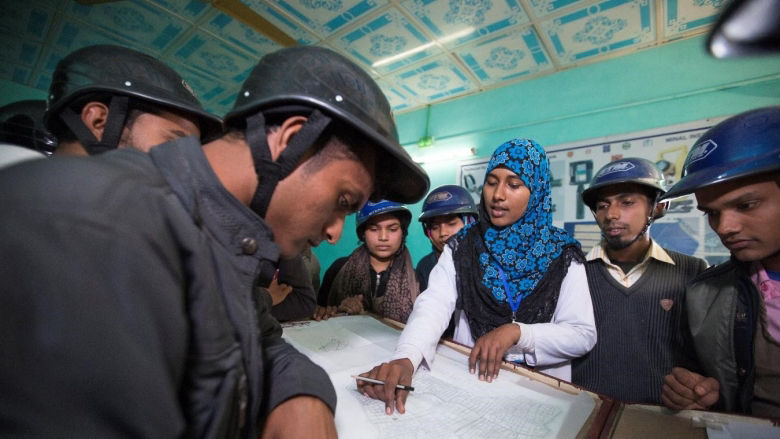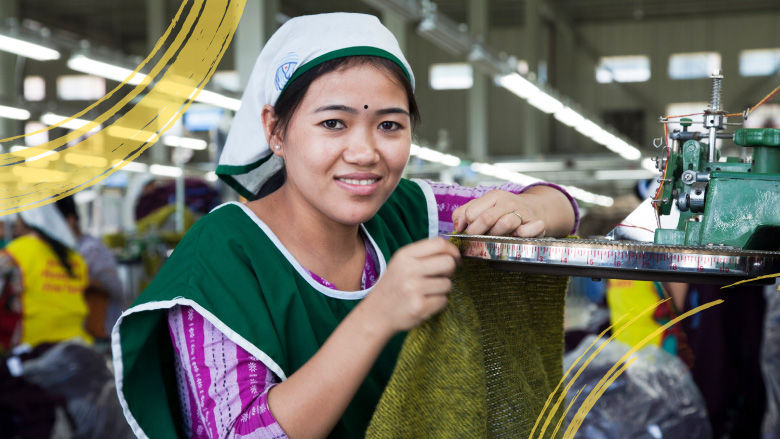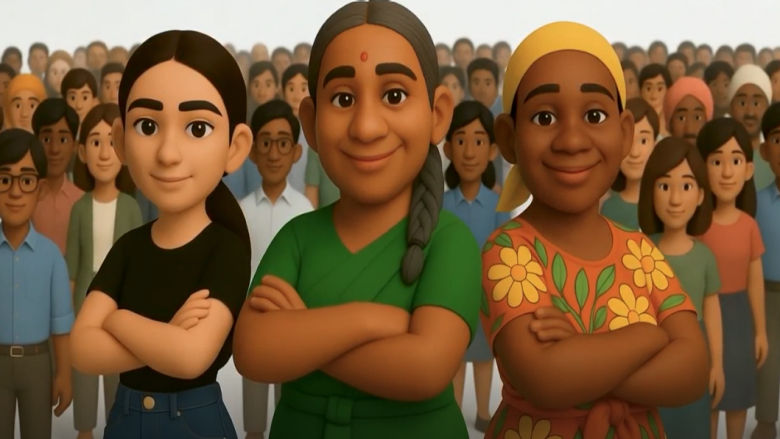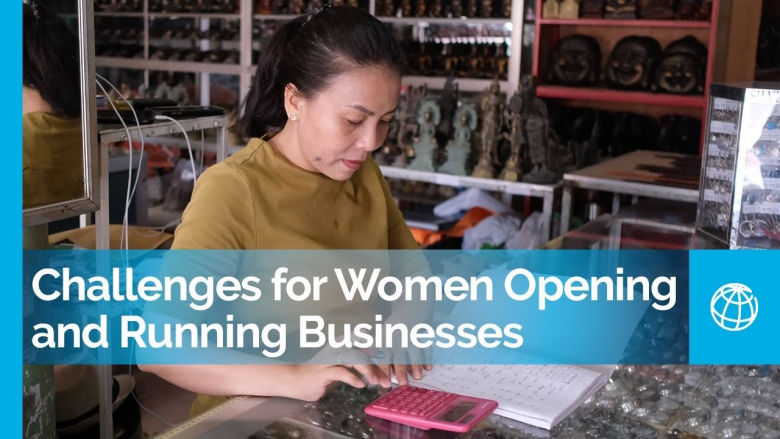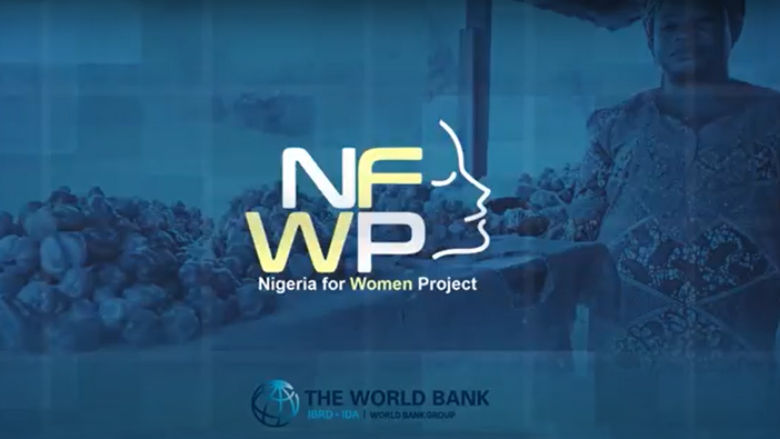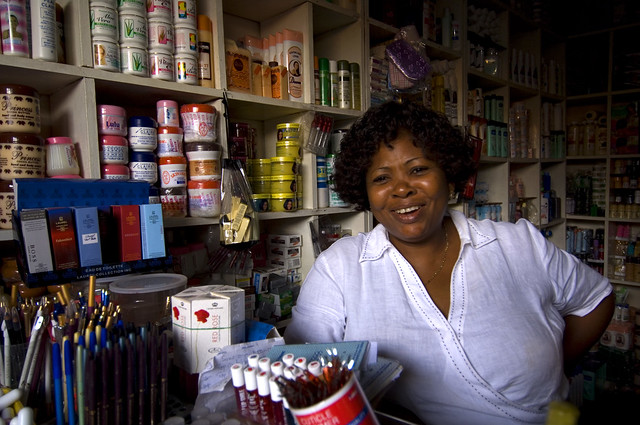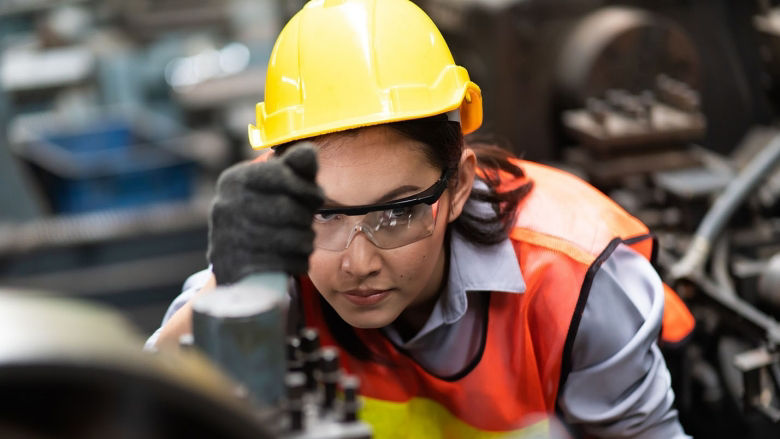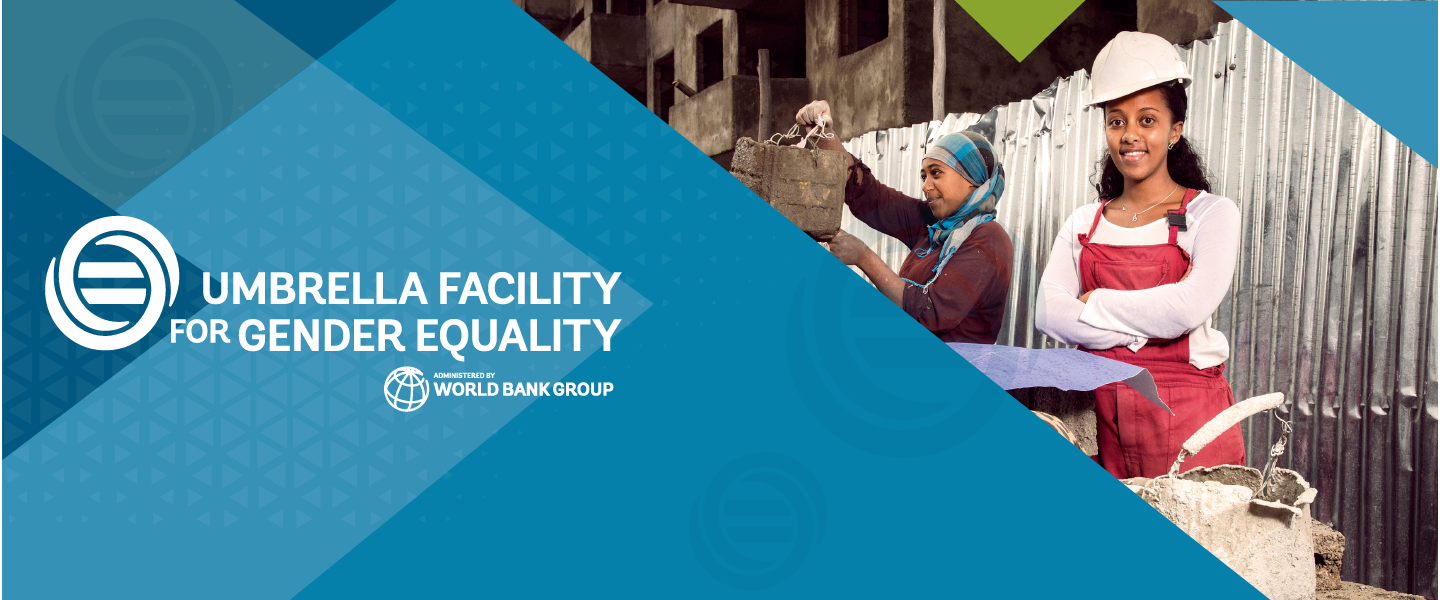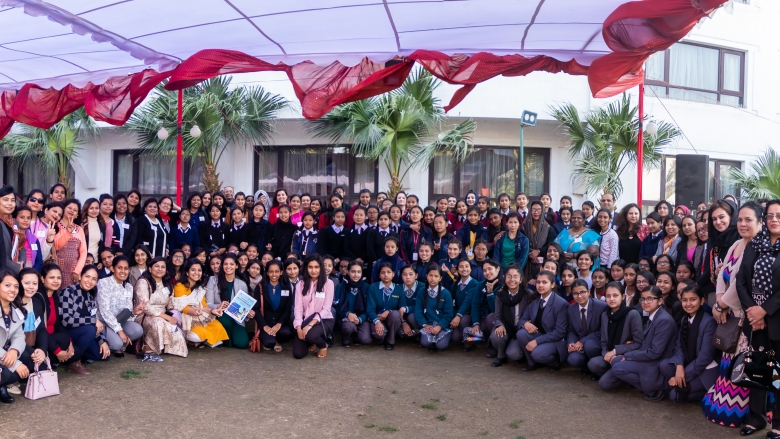The World Bank Group is strengthening women’s and girl’s human capital, advancing women’s employment and entrepreneurship, tackling gender-based violence and promoting women’s leadership. In fragile and conflict-affected settings, we are ramping up support to reach more women with targeted solutions. Across regions, a growing number of projects and investments are showing how to drive lasting impact for women, families and economies.
In Nigeria, the World Bank Group is supporting a range of initiatives that empower women and girls through skills, services, and economic opportunities. The Adolescent Girls Initiative (AGILE) program is reaching 8.6 million young women with safe-space community clubs that help build life skills, access GBV prevention and support services, and shift harmful social norms. Through the Nigeria for Women Project, more than 460,000 women have joined affinity groups that promote financial inclusion, leadership, and access to markets via inclusive supply chains and stronger links with corporate buyers. Complementary initiatives like the Women Entrepreneurs Finance Initiative (We-Fi Code) and IFC’s Nigeria2Equal are further expanding support, reaching hundreds of thousands of women-owned businesses and advancing gender equality in the private sector.
In Chad, the World Bank Group is advancing digital inclusion for women through a digital transformation project that will expand broadband access to 2.2 million women and enable 1.4 million women to access digital services through innovative platforms. The initiative promotes digital financial inclusion, targeting an increase in the share of women using digital payments from 19% to 25%, reaching 600,000 women. Targeted interventions are helping close digital skills gaps—through digital ambassador programs, men's engagement to shift social norms, and tailored training in digital literacy, financial skills, and cybersecurity, with a strong focus on reaching rural women and girls.
In Mozambique and Madagascar, through the East Africa Girls' Empowerment and Resilience Program “EAGER” program, the World Bank Group is strengthening institutional capacity to implement gender equality policies, while directly supporting over 2 million girls to stay in or return to school through targeted financial assistance. At the same time, programs are empowering 160,000 women by enhancing skills and employability in key economic sectors, facilitating job creation, and increasing earnings.
In Brazil, a new IFC investment is expanding women’s access to quality jobs and STEM skills through gender-focused interventions in a leading multi-channel retailer. The $100 million IFC loan, with an additional $30 million mobilized, aims to advance women’s economic inclusion while supporting company growth and national development. In 2023 IFC subscribed $200 million in Itaú Unibanco’s gender bond program lending to women-owned small and medium enterprises in Brazil.
In Jordan, the World Bank Group is addressing the barriers that limit women’s ability to enter and stay in the workforce—including challenges related to workplace conditions, transportation, financial inclusion, and childcare. The Enhancing Women’s Economic Opportunities Project supports women’s labor force participation through childcare grants, subsidies, and policy reforms.
The Women Entrepreneurs Finance Initiative (“We-Fi”):has facilitated billions of dollars to women-led SMEs (WSMEs). Since 2018, We-Fi has allocated over $350 million to its Implementing Partners, who have collectively reached nearly 400,000 WSMEs across 82 countries. These efforts have mobilized over $5 billion in public and private sector funding for women entrepreneurs – nearly half in Africa and over 60% in IDA and countries affected by fragility, conflict and violence. We-Fi is also spearheading the WE Finance Code, an ecosystem-wide initiative to bridge the financing gap for women through industry commitments, policy guidance, standardized data collection, and country-level reforms aimed at expanding women’s access to finance. Twenty-eight (28) countries have committed to piloting the Code and over 100 executives have been identified as Champions to advocate for women’s financial inclusion by supporting standardized reporting practices, influencing lending behavior through financial sector benchmarks, and leveraging early data to guide gender-smart reforms in participating financial systems.
Evidence informs our operations
The Gender Innovation Labs (GILs) at the World Bank Group are teams that using evidence to improve gender-related outcomes in operations and policies. The GILs conduct research to understand the causes of gender inequalities and test innovative solutions to address them. They collaborate closely with stakeholders to ensure their findings have a tangible impact on policies at scale.
The GILs' work includes identifying gender-related constraints and factors, generating evidence on innovative solutions, informing policy dialogues, and collaborating with operational teams on program design. The GILs are well-equipped to respond to the need for investments in data and evidence, as outlined in the World Bank Group Gender Strategy 2024-2030. They can effectively implement the test-adapt-expand approach to innovation and support staff capacity building in addressing gender issues through knowledge events and operational team support and are informing the design of country-specific interventions with tailored evidence products.
The World Bank ‘s Gender Data Portal is a comprehensive source for the latest sex-disaggregated statistics providing open access to over 1,000 indicators compiled from officially recognized international sources covering demography, education, health, economic activities, assets, leadership, gender-based violence, and more. This portal allows users to easily access and explore the data through interactive data visualizations, data stories, and compelling narratives with the goal of influencing policy and decision-making. Key indicators to monitor progress on gender equality are compiled in our Country Gender Landscape Briefs and used by operational teams to align project design with national priorities and gender targets.
Last Updated: Sep 23, 2025


